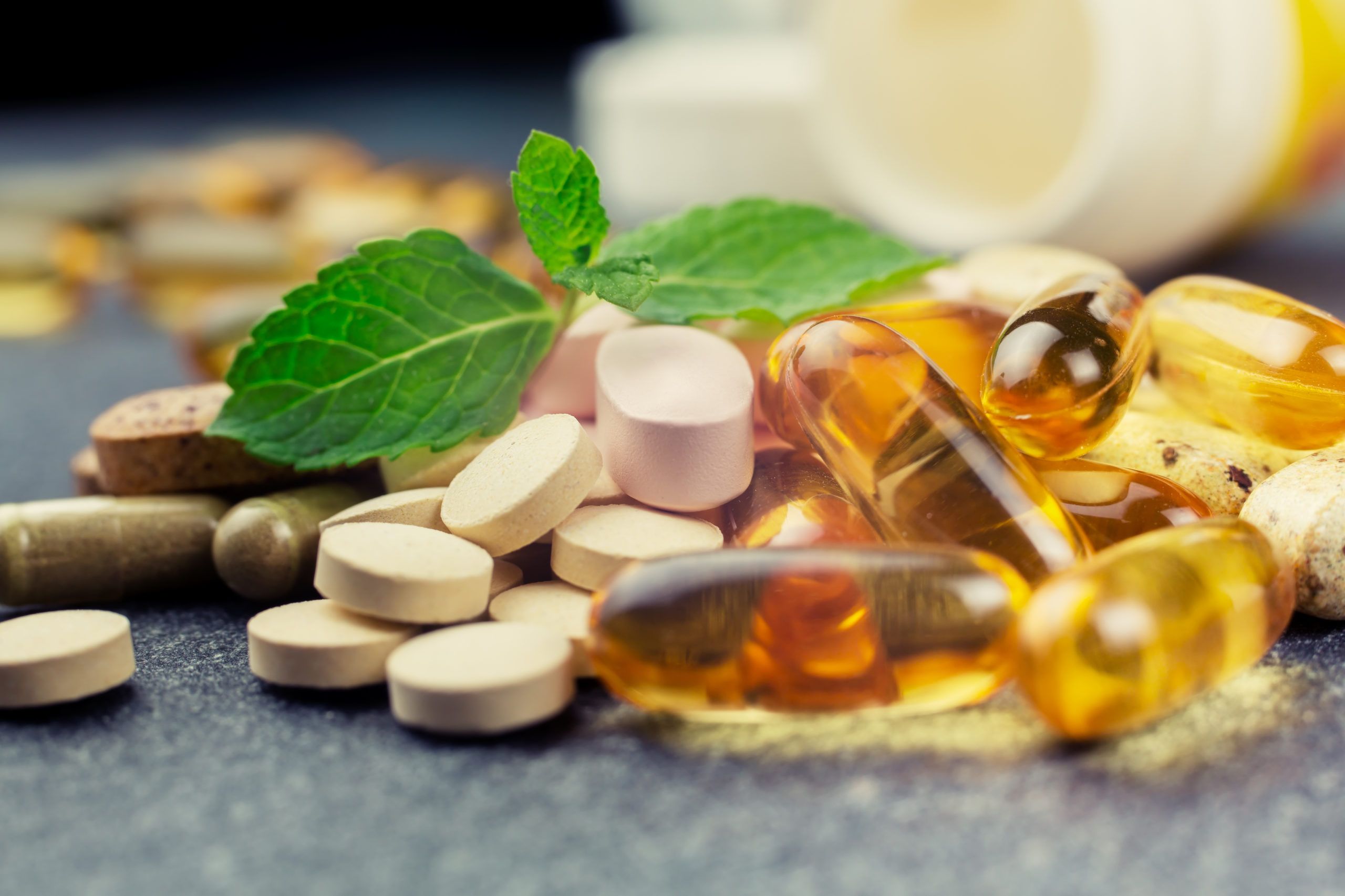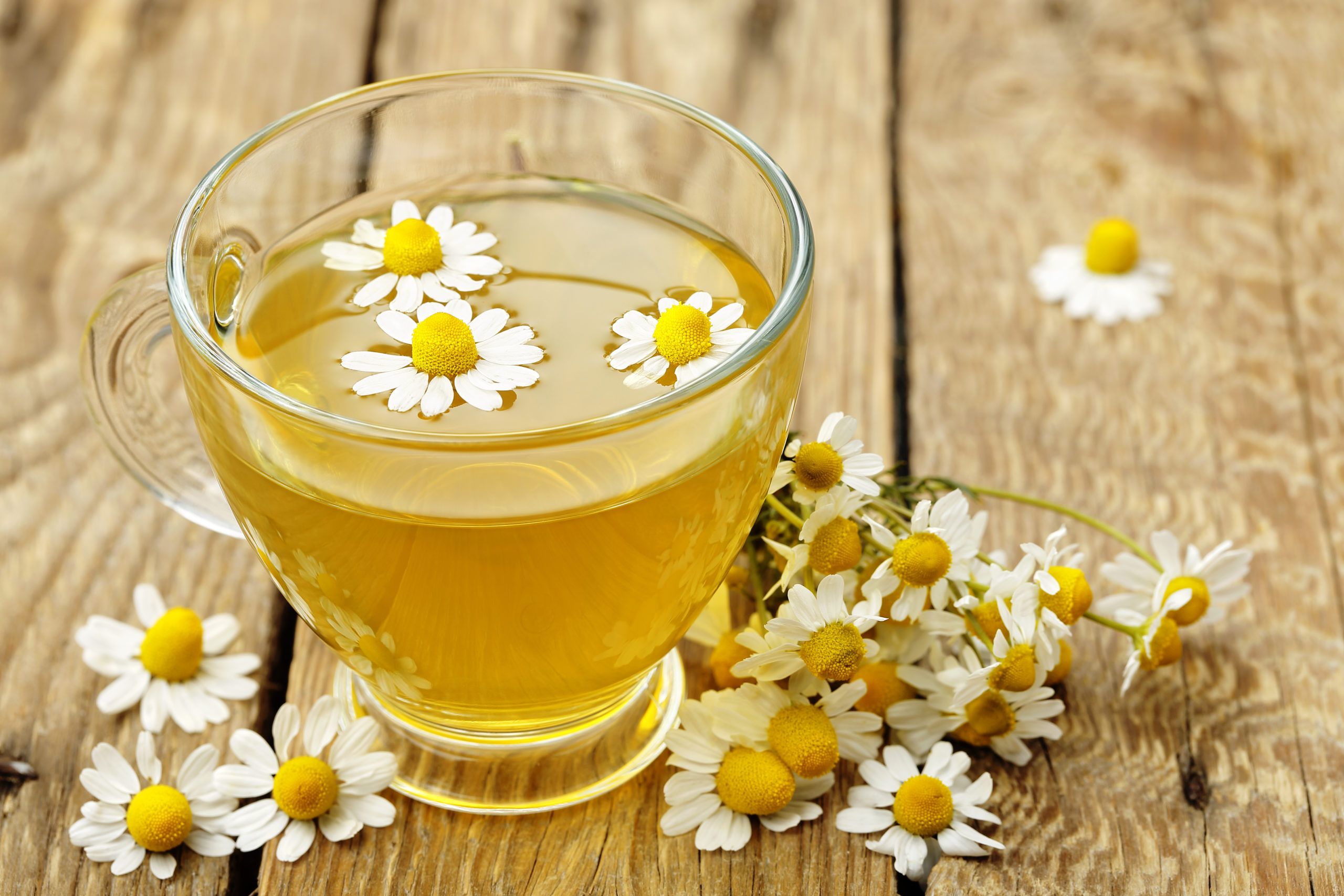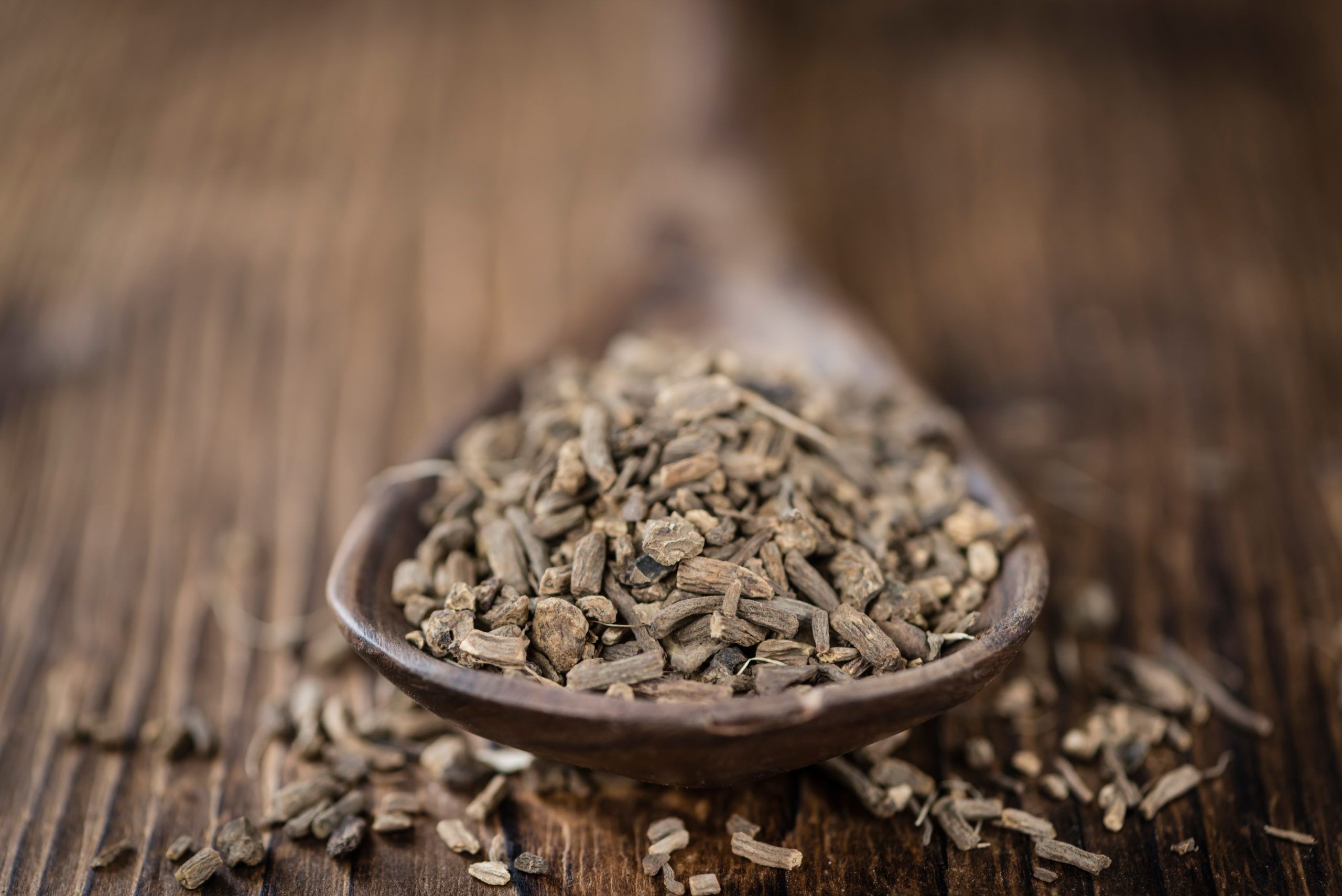Anxiety disorders affect nearly 30 percent of adults at some point in their lives. Anxiety disorders are different from normal feelings of nervousness or anxiousness and involve excessive fear or anxiety.
Anxiety disorders can cause people to try to avoid situations that trigger their symptoms. Job performance, school work, and personal relationships can suffer if the individual does not seek help.
The first step is to see your doctor and make sure there is no physical problem causing your anxiety symptoms. If an anxiety disorder is diagnosed, a mental health professional can work with you on finding the best therapy options. Anxiety disorders are treatable, and many effective treatments are available. Unfortunately, many people with anxiety disorders do not seek professional help.
Over-the-counter (OTC) medications, dietary supplements, and herbals can be appealing options for people who are not quite ready to seek professional help. Several OTC products can potentially help reduce anxiety symptoms. You can purchase them without seeing a doctor or getting a prescription.
People with anxiety disorders who are not getting adequate symptom control with their current prescriptions might consider OTC options.
If you are currently taking any medications, it is essential to check with your doctor or pharmacist before starting any supplements. Just because a product is “natural” does not mean that it is safe. Many dietary and herbal supplements may cause potentially harmful drug interactions.
Some people find that taking specific vitamins, dietary supplements, or herbal products may reduce their anxiety symptoms. There are several ways these substances may help. Research is sometimes lacking on the effectiveness of many supplements, but studies generally support that they are not harmful.

Vitamins and Dietary Supplements
When you commit to taking control of your anxiety disorder, there is no “easy button” or “magic pill.” You will have to prepare healthy meals and build physical activity into your schedule. You must put in the work and literal sweat to live a healthy lifestyle if you want your mental health to improve. If you reject the fundamental importance of a healthy lifestyle, your physical and psychological health will suffer.
When life gets busy, it can be tough to get sufficient servings of fresh fruits, vegetables, lean protein, and other essential nutrients. Taking multivitamins and other supplements ensures that you never miss the dietary requirements which promote your physical and mental health.
Gamma-Aminobutyric Acid (GABA)
GABA has an essential role in our brain cells as a chemical messenger. But when used as a supplement, its function is unclear. Some studies show that it may be an option to reduce stress, fatigue, anxiety, and insomnia. More evidence is needed to evaluate the potential benefits of taking GABA.
Since GABA supplements are generally safe, they may be worth trying if you’re looking for natural stress relief. GABA-containing supplements can cause drowsiness, so they should be taken at bedtime.
L-Theanine
L-theanine, an amino acid, is commonly promoted as a calming ingredient in tea leaves. Amino acids are the building blocks of proteins used for the various metabolic functions of our cells.
Research indicates that L-theanine promotes relaxation without drowsiness. While the evidence is limited, L-theanine may be possibly effective for reducing symptoms of stress. Amino acids, like L-theanine, are generally safe and will not interact with prescription medications.
Magnesium
Magnesium is a mineral found in many plant and animal-based foods. Green leafy vegetables, legumes, nuts, seeds, and whole grains are excellent magnesium sources. Magnesium is essential for our normal cellular function, and inadequate magnesium is linked to many health problems, including anxiety.
Pooled data from 18 different studies found that magnesium was an effective remedy for mild anxiety symptoms. Magnesium supplements were observed to be particularly helpful in women with premenstrual syndrome (PMS) related anxiety.
Magnesium is relatively safe and does not cause interactions with prescription anxiety medications. Magnesium is frequently included in multivitamins with minerals, or it can be taken as a separate supplement.
Omega-3 (Fish Oil)
Omega-3 fatty acids are a group of nutritional fatty acids, in particular eicosatetraenoic acid (EPA), docosahexaenoic acid (DHA), and alpha-linolenic acid (ALA). Omega-3 fatty acids naturally occur in fish (hence the reference “fish oil”) and plant sources like nuts and seeds.
Studies have found that omega-3 fatty acids are beneficial in the management of both medical and mental illnesses. Data from randomized placebo-controlled clinical trials suggest that omega-3 fatty acid supplements can reduce inflammation and anxiety among healthy young adults.

Vitamins
Multivitamin supplements contain vitamins A, several different forms of vitamin B, vitamin C, vitamin D, and may contain minerals. Deficiencies in all of these vitamins have been linked to mental health disorders.
A 2019 study, among others, have shown that multivitamins decrease anxiety symptoms in young adults. This finding indicates that vitamin deficiencies may be an underlying link to anxiety in some people, highlighting the importance of a healthy diet.
Another study in 2018 showed substantial evidence that vitamin D supplementation can help treat anxiety and depression symptoms. Participants in the study were also participating in strenuous physical exercise.
Folate is an ingredient found in multivitamins, B-complex vitamins, or it can be taken on its own. Folate, also called folic acid or vitamin B9, is a vitamin required for the human body to perform many essential functions. However, the human body is unable to make its own folate, so it must be obtained through the diet or vitamin supplements. Some people with anxiety disorders have low folate levels and may benefit from additional folate supplementation.
Multivitamins are safe to take daily, long-term, and will not interact with other medications that treat anxiety. To avoid stomach upset, always take multivitamins right after eating a meal.
5-Hydroxytryptophan (5-HTP)
Serotonin is a neurotransmitter that passes signals between brain cells. Serotonin is essential for the regulation of mood and anxiety. 5-HTP is a precursor for serotonin molecules, meaning our brains can use it to produce more serotonin.
5-HTP does not appear to be harmful on its own, but should not be taken along with other medications that boost serotonin levels. This would include antidepressants like SSRIs or SNRIs. This combination may potentially increase the risk of serotonin syndrome, which can be a life-threatening medical emergency.
Herbal Supplements
Some plants contain chemicals that may help relieve symptoms associated with panic and anxiety disorders. Some supplements promoted for anxiety or stress relief may include a combination of dietary supplements and herbal extracts. Be sure to read and follow all warnings and directions on the product label. Herbal supplements are typically available as liquid extract or drops, tea, and capsules.
Keep in mind that dietary supplements, including herbals, are not regulated by the FDA as drugs. While some research supports the use of herbal supplements, they are not proven to diagnose, treat, cure, or prevent any disease.
Ashwagandha
Ashwagandha is an ancient medicinal remedy derived from a shrub plant (Withania somnifera) native to India and North Africa. Ashwagandha has been extensively studied and has a wide variety of possible health benefits.
Ashwagandha is most well-known for its ability to reduce stress through its ability to lower cortisol levels. Cortisol is known as the stress hormone. In one study of chronically stressed adults, those who supplemented with ashwagandha had more significant reductions in cortisol, compared with the placebo group.
Some research suggests that ashwagandha may be just as effective as certain prescription medications in reducing anxiety.
Ashwagandha is generally safe for most people, but individuals with certain health conditions should not take it without checking with their healthcare provider.
Bacopa
Bacopa (Bacopa monnieri) plant extracts are known for their ability to protect nerve cells. Ancient Indian medical practitioners have used bacopa monnieri for centuries for a variety of health benefits. Studies indicate that bacopa may improve memory, reduce anxiety, and help to treat some seizure disorders.
A 2013 study found bacopa could help reduce cortisol levels. Cortisol is known as the stress hormone, and high levels of cortisol may worsen your anxiety symptoms.

Chamomile
Chamomile is the name for a group of flowering plants whose leaves are commonly found in teas. The essential oil extracted from chamomile is also used for its anti-inflammatory and calming properties.
In 2009, a study at the University of Pennsylvania tested whether chamomile extract was more effective than a placebo at treating symptoms of generalized anxiety disorder (GAD). The study results showed a more noticeable reduction in GAD symptoms, though the effect was modest.
Chamomile is generally considered safe with little risk drug interactions. Its soothing effects may cause drowsiness, so it should be taken close to bedtime.
Kava Kava
Kava kava, also known as kava root or kava, is a popular herbal supplement made from the Piper methysticum plant’s roots. Kava has been used for hundreds of years by Pacific Islanders as a tonic for relaxation.
Research around kava is conflicting, with some studies showing it has a positive effect on generalized anxiety disorder. In contrast, other studies show it is not better than a placebo. Like all anxiety treatment options, individual results may vary.
In 2002, the FDA and CDC issued warnings that kava has been linked to rare but severe liver failure in patients who took it for eight weeks. People with liver problems should not take kava.

Lavender
Lavender, a flowering plant well-known for its fragrance and color, has been used in teas and medicinal remedies for centuries.
Several trials support the use of lavender oil to effectively reduce minor anxiety symptoms and help with insomnia. While not a powerful remedy, lavender may be worthwhile to try as a tea or aromatherapy for its relaxing effects.
Lavender is generally safe and does not have interactions with prescription drug treatments.
Melatonin
Melatonin is a hormone that your brain makes naturally to help regulate sleep. Clinical studies have shown that melatonin supplements can be useful in treating sleep problems.
Researchers have also studied melatonin for other uses, including anxiety. Some speculate that melatonin may improve anxiety by improving sleep. Since it causes drowsiness, it should only be taken at bedtime.
Melatonin may be equally as effective as prescription sedatives at reducing preoperative anxiety. Researchers hypothesize that if melatonin can reduce preoperative anxiety, it could potentially reduce other types of anticipatory anxiety.
Passionflower
Some studies suggest passionflower (Passiflora incarnata) might help relieve insomnia and anxiety. It appears to boost the level of gamma-aminobutyric acid (GABA) in your brain.
Passionflower is considered to be generally safe but may cause drowsiness. Passionflower is not safe to be used during pregnancy as it could induce contractions.

Valerian
Valerian is a flowering plant used as a herbal supplement, mostly for the treatment of insomnia. Research on valerian shows mixed results for its effectiveness for anxiety disorders. However, valerian may be a logical choice if you have insomnia-related anxiety.
Valerian appears to be relatively safe without any significant drug interactions.
Choosing the right OTC Treatment
Although all of these supplements are generally tolerated well, it’s important to understand how they may affect you individually. Individual results are highly variable. Your age, pregnancy status, an upcoming surgery, or other underlying health conditions can all change how safe these options are for you in your unique situation.
While some OTC treatments have good evidence for helping reduce some anxiety symptoms, be aware that none of them will provide quick relief during anxiety or panic attacks.
Before starting a new OTC product, speak with your doctor or pharmacist to make sure it is safe, especially if you are currently taking any other medications or have any medical conditions. Getting control over your panic or anxiety disorder is within your reach. Your healthcare professional team wants to help you get there.



